Zimbabwe re-engages UK through Commonwealth application and business loans
This week, Zimbabwe and the United Kingdom continued steps to improving the relationship between the two countries. Early this week, the Commonwealth organization announced that Zimbabwe had officially applied to rejoin the group through a letter sent on May 15 by President Emmerson Mnangagwa to the Commonwealth’s Secretary-General Patricia Scotland. The Commonwealth is a voluntary organization comprising of 53 former British colonies. Zimbabwe originally joined the Commonwealth in 1980 following its independence but left the group in 2003 after its membership was suspended following its controversial 2002 elections, which the Commonwealth states “did not adequately allow for a free expression of will by the electors.” The membership process requires an informal assessment undertaken by the Commonwealth’s secretary-general and consultations with other member countries. As part of the membership process, Zimbabwe has also invited the Commonwealth to send observers to the upcoming election expected this July.
In other news this week, CDC Group, the U.K.’s development finance institution, announced that, in partnership with Standard Chartered Bank, it would lend $100 million to the Zimbabwean private sector. These loans will be Britain’s first direct commercial lending in Zimbabwe in over 20 years.. The loans are likely to focus on the manufacturing, food processing, and agricultural sectors.
In other news, the Zimbabwean government distanced itself from comments made earlier this week by Deputy Finance Minister Terence Mukupe who suggested that the Zimbabwean army would not allow the opposition to take power even if they won the election. In a statement addressing the comments, Khaya Moyo, the ruling ZANU-PF party’s acting information minister, noted that the comments were unauthorized, unlawful, and “imperil national peace and stability, and amount to a frontal challenge to the tenets and practices of democracy.”
The Democratic Republic of the Congo fights off Ebola, appoints controversial judges to its constitutional court
The Democratic Republic of the Congo (DRC) continues to battle the outbreak and spread of the Ebola virus in its northwestern Equateur Province. According to its ministry of health, since May 8, 27 people have died and 58 have shown symptoms. Fears of a widespread pandemic were raised when officials confirmed a case in the 1.5-million-person city of Mbandaka. Unfortunately, lack of trust between doctors and patients during an Ebola outbreak is not uncommon; in fact, early this week, two infected patients fled their hospital during a particularly contagious phase of the disease, potentially spreading the virus even more.
The World Health Organization (WHO) has already sent over 7,500 experimental vaccines to the country, with doses going first to health workers. It plans to send another 8,000 doses this week, with the hope of vaccinating at least 10,000 by the end of June. On Wednesday, the U.S. announced it would be sending another experimental vaccine to Mbandaka, but so far, only 90 doses exist.
In other DRC news, on Sunday, May 20, President Joseph Kabila appointed three new judges to the country’s constitutional court. The nine judges on the court are nominated by the president, the parliament, and the High Council of the Judiciary, three each. The current openings appeared after two judges resigned, allegedly under pressure, after the death of a third judge. Critics fear that the appointment of two specific judges, Norbert Nkulu Kilombo (by Kabila) and Francois Bokona (by the pro-Kabila parliament), will overwhelmingly favor the controversial Kabila at a time of political turmoil. To date, the constitutional court has enabled Kabila, whose presidential term expired in 2016, to postpone elections and stay in power. Opposition leaders consider these nominations to be part of Kabila’s potential strategy to run for president again in December of this year, from which he is constitutionally barred.
Rwanda and Arsenal sign sponsorship deal and Rwanda puts into effect new tax laws
This week, Premier League soccer (football) club Arsenal and Rwanda signed a three-year sponsorship deal in the aim to promote Rwanda’s tourism sector. A “Visit Rwanda” logo will be inscribed on the left-sleeve of Arsenal Jerseys at the start of the new season. According to Arsenal’s chief commercial officer, Vinai Venkatesham, the Premier League Club’s “shirt is seen 35 million times a day around the world.” The deal will thus highlight Rwanda’s tourist hotspots, such as national parks, rainforests, and wildlife. In addition to the marketing push, the Premier League club affirmed that players from their men’s and women’s teams would visit Rwanda and host coaching camps to support the development of soccer for boys and girls in Rwanda. The financial details of the deal were not revealed.
In other news, on Tuesday, the Rwanda Revenue Authority announced that it put into effect the country’s new Income Tax Law, which was adopted last month. The law is in place to encourage voluntary compliance among taxpayers. The law, which replaces the 2005 regulations on income taxes, also aims to facilitate and promote investments. For instance, the law states that capital gains from the sale or transfer of units of collective investment schemes is exempt from the Capital Gain Tax, which collects levies on the difference between acquisition value of shares and their selling and transfer prices.
Along similar lines, other countries in eastern Africa are considering raising taxes, decisions that are bringing about inflation fears. In its 2018/19 budget, Uganda plans to increase indirect taxes on fuel prices and financial services. Starting in September, Kenya plans on imposing a 16 percent value-added tax (VAT) on petroleum products—petroleum had previously been exempt from the VAT.
The Brookings Institution is committed to quality, independence, and impact.
We are supported by a diverse array of funders. In line with our values and policies, each Brookings publication represents the sole views of its author(s).

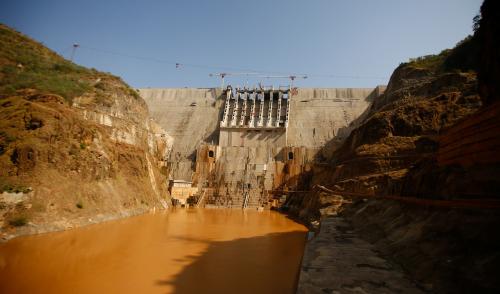
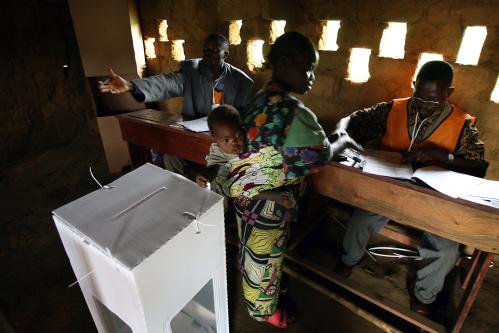
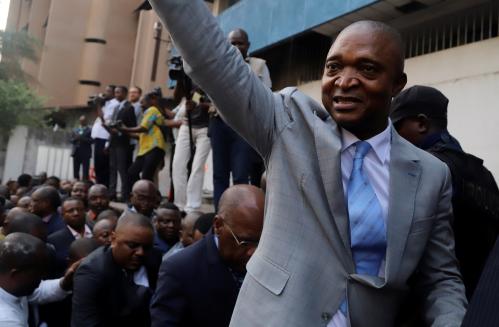


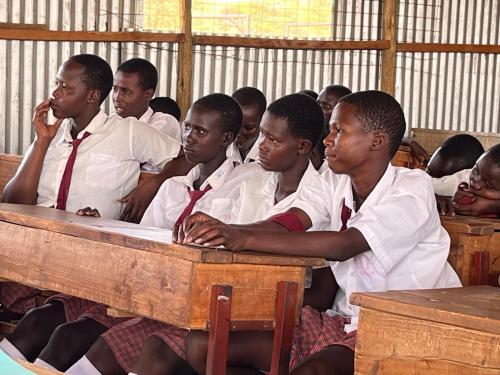
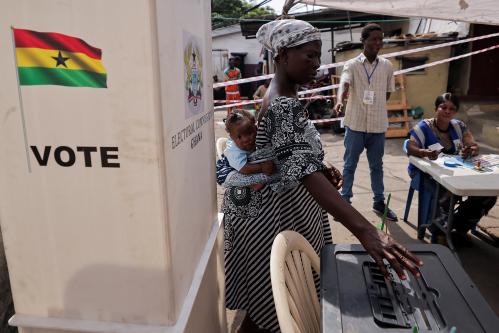
Commentary
Africa in the news: Zimbabwe updates, DRC Ebola battle, and Rwanda sponsors Arsenal
May 25, 2018